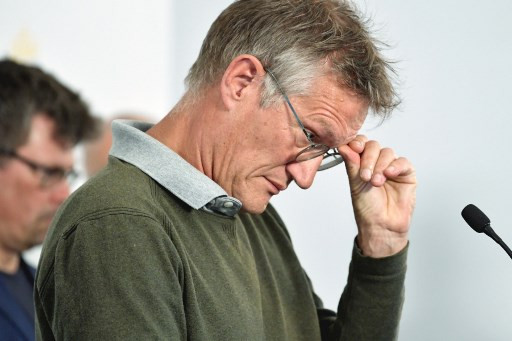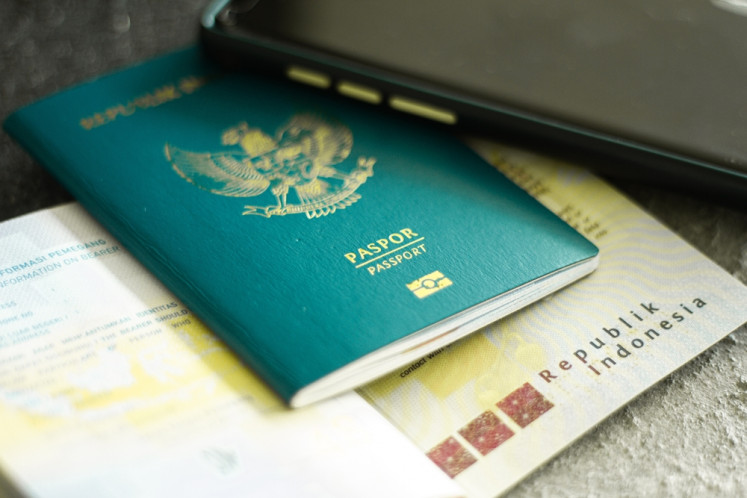Sweden admits virus response could have been better
In comments to AFP later Anders Tegnell, the public face of Sweden's virus response, acknowledged that they should have handled nursing homes differently: they account for more than half of Sweden's deaths from the virus. "I think if we as a society had looked more at them...that could have made a difference," he said.
Change Size
 State epidemiologist Anders Tegnell of the Public Health Agency of Sweden gives a news conference on a daily update on the coronavirus Covid-19 situation, in Stockholm, Sweden, on June 3, 2020 Sweden's top epidemiologist said there was room for improvement in the country's controversial softer approach to curbing the spread of the novel coronavirus. But Anders Tegnell, the public face of Sweden's virus response, defended the decision not to impose the strict lockdowns seen in other countries. (AFP/Anders Wiklund )
State epidemiologist Anders Tegnell of the Public Health Agency of Sweden gives a news conference on a daily update on the coronavirus Covid-19 situation, in Stockholm, Sweden, on June 3, 2020 Sweden's top epidemiologist said there was room for improvement in the country's controversial softer approach to curbing the spread of the novel coronavirus. But Anders Tegnell, the public face of Sweden's virus response, defended the decision not to impose the strict lockdowns seen in other countries. (AFP/Anders Wiklund )
S
weden's top epidemiologist said Wednesday there was room for improvement in the country's controversial softer approach to curbing the spread of COVID-19, but maintained he still had faith in the strategy.
Anders Tegnell, the public face of Sweden's virus response, defended the decision not to impose the strict lockdowns seen in other countries.
"If we were to encounter the same disease with everything we know about it today, I think we would end up doing something in between what Sweden and the rest of the world has done," Tegnell told Swedish Radio.
But in comments to AFP later he acknowledged that they should have handled nursing homes differently: they account for more than half of Sweden's deaths from the virus.
"I think if we as a society had looked more at them...that could have made a difference," he said.
"Maybe earlier testing could have made some kind of difference, especially among the elderly homes."
Sweden did ban visits to nursing homes.
Sweden has so far reported 40,803 confirmed cases and 4,542 deaths, a toll far greater than neighboring countries -- and one described by Tegnell as "absolutely" too high.
Schools have remained open to under-16s. Cafes, bars and restaurants and most businesses have also stayed open.
But gatherings of more than 50 people have been forbidden.
People have been urged to work from home, limit contacts, practice social distancing and wash hands frequently. The public is expected to follow the recommendations, but they are not legally binding.
Tegnell told Swedish Radio that he was still unsure which parts of society could have been shut down to make a difference.
"It would be good to know more precisely what you should shut down to better prevent a spread of the infection," he said.
'Strategy is sound'
Speaking to reporters Wednesday, Tegnell stressed that his comments should not be taken to mean that he or the Public Health Agency had had second thoughts about their strategy.
"We're still of the opinion that the strategy is sound, but then there are always improvements to make, especially in hindsight," Tegnell told reporters.
"I personally think it would be rather odd to answer anything else to such a question," he added.
Sweden's leaders have repeatedly stressed that the measures are designed for the long haul, that the fight against the virus is a "marathon, not a sprint".
But their approach has been criticized at home and abroad, particularly as the number of deaths has far exceeded those in neighboring Nordic countries, which all imposed more restrictive containment measures.
Tegnell noted what he called an "ambivalent" view of Sweden abroad, with their approach having received both praise and scorn.
"Sometimes it has been perceived as a bit of a threat, because it could indirectly cast doubt on some of the fairly drastic measures undertaken," Tegnell said.
Speaking separately to Swedish news agency TT, he said implementing heavy-handed measures "can also do more damage.
"There's no direct correlation between doing a lot and being cautious," he argued.
"There's nothing to indicate that we would have had a totally different outcome if we had implemented more drastic measures.
"Britain did that but did not have a good outcome." he said.









